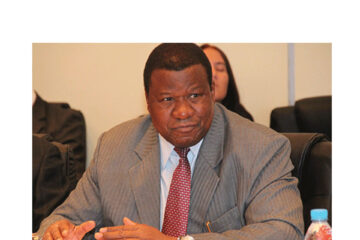Stefanus Nashama
Minister of Trade and Industrialization , Lucia Iipumbu, has expressed concern related to sustainable enetrprises, labour rights and the equitable distribution of economic benefits in Namibia.
“We must consider all social implications of Special Economic Zones (SEZs), ensuring that the economic benefits are shared equitably among all segments of society.
“The SEZ Bill should be crafted with a forward-looking approach, incorporating measures to promote innovation, research and development and the integration of new technologies,” she stated.
The Minister was speaking at the stakeholders’ consultations on the draft SEZ Bill in Walvis Bay on Monday.
The Bill, according to Iipumbu, has requested inputs regarding four key policies and legislative frameworks, namely SEZ, National Informal Economy, Startups and Entrepreneurship Development Policy (NIESED), Namibia Investment Promotion and Facilitation Regulations and National Cooling Strategy.
The minister emphasised that addressing SEZ issues would position the country as a hub for cutting-edge industries, attracting both domestic and foreign investments that fuel economic progress.
Adding that the Bill will create a supportive ecosystem that encourages the birth and growth of new enterprises, ensuring that they have the necessary resources, mentorship and infrastructure to thrive.
Iipumbu reminded stakeholders that the Erongo region is a hub of diverse economic activities due to its rich natural resources.
“This region is strategic in attracting investments in various sectors such as Mining, Fishing, Renewable Energy including Green Industrialisation, and logistics to mention but a few,” Iipumbu stated.
Emphasising the need for the Bill to provide opportunities for creating jobs through value addition to the country’s resources.
Iipumbu revealed that the Namibia Investment Promotion and Facilitation Bill is being finalised and enacted by the ministry, after going through consultation throughout all the regions.
At the same time, the minister urged vocational training institutions to equip trainees with new technologies not only for repairs and servicing but to enable them to own the entire value chain of manufacturing energy-efficient products.
She expressed gratitude to stakeholders for their participation in shaping the country’s economic policies.




